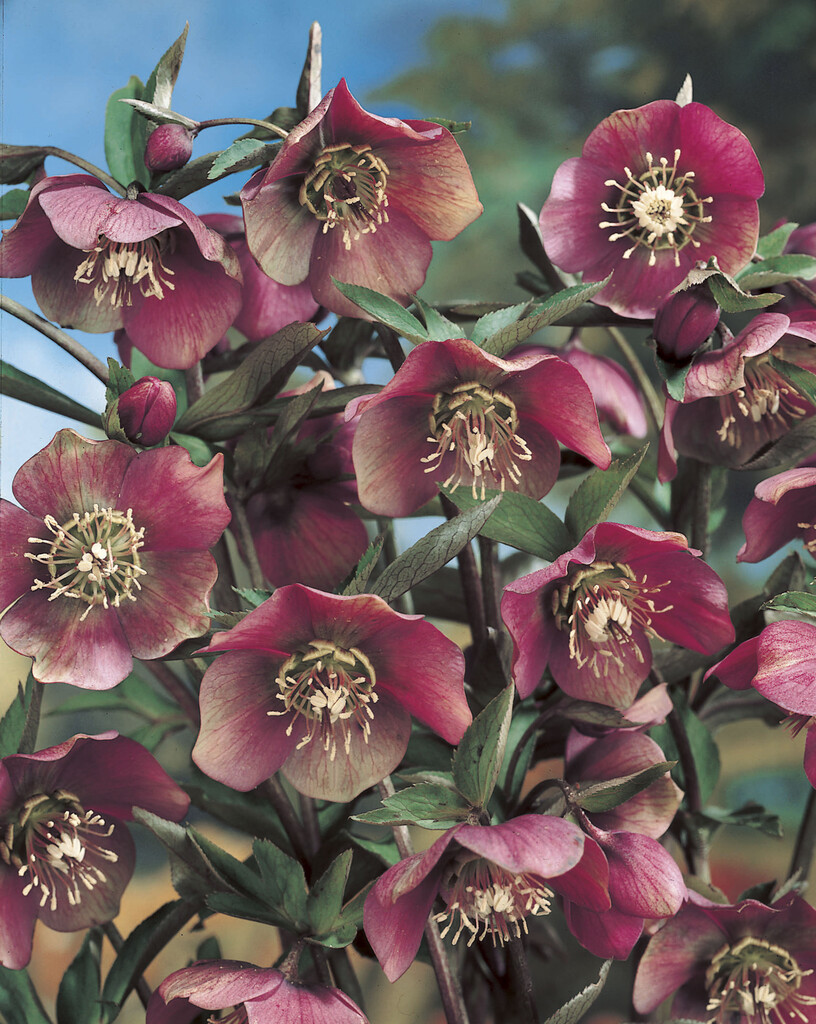Helleborus purpurascens
purple-flowered Christmas rose
A compact, clump-forming, deciduous perennial up to 25-30cm high. The distinctive green leaves are hairy when young, each of the leaflets separates from the top of the leaf stalk almost at one point. The first rich purple or pinkish purple flowers start opening at ground level in December and it will continue to flower until March.
Size
Ultimate height
0.1–0.5 metresTime to ultimate height
2–5 yearsUltimate spread
0.1–0.5 metresGrowing conditions
Moisture
Moist but well–drainedpH
Alkaline, NeutralColour & scent
| Stem | Flower | Foliage | Fruit | |
| Spring | Purple | Green | ||
|---|---|---|---|---|
| Summer | Green | |||
| Autumn | Green | |||
| Winter | Purple |
Position
- Full sun
- Partial shade
Aspect
East–facing or West–facing or South–facing
Exposure
Sheltered Hardiness
H6Botanical details
- Family
- Ranunculaceae
- Native to GB / Ireland
- No
- Foliage
- Deciduous
- Habit
- Clump forming
- Potentially harmful
- Harmful if eaten, skin irritant. Wear gloves and other protective equipment when handling. Pets: Harmful if eaten, skin irritant. For further information and contact numbers regarding pets, see the HTA guide to potentially harmful plants
- Genus
Helleborus can be rhizomatous, herbaceous or semi-evergreen perennials forming a clump of pedate basal leaves, or evergreen with erect, leafy stems. Large, bowl-shaped flowers are borne in loose clusters in late winter or spring
- Name status
Correct
- Plant range
- EC Europe
How to grow
Cultivation
Grown in moisture retentive neural to alkaline soil that is not prone to drying out. Best planted in a sunny position or light shade. Improve lighter soil with organic matter such as garden compost or a manure-based soil conditioner prior to planting. Mulch annually in spring. For more details, see hellebore cultivation.
Propagation
Propagate by division in early autumn or in early spring after flowering. Propagate by seed as soon as ripe and keep in a coldframe.
Suggested planting locations and garden types
- Cottage and informal garden
- Flower borders and beds
- Cut flowers
- Underplanting of roses and shrubs
Pruning
Remove faded leaves in late summer/autumn.
Pests
Diseases
May be susceptible to hellebore black death, hellebore leaf spot, grey moulds (botrytis) and virus diseases.
Get involved
The RHS is the UK’s gardening charity, helping people and plants to grow - nurturing a healthier, happier world, one person and one plant at a time.
